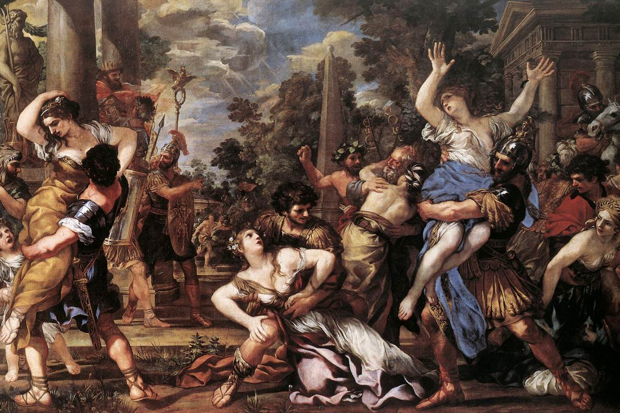When Mary Jane Mowat remarked recently that rape conviction statistics would not improve ‘until women stop getting so drunk,’ the retired Crown Court judge knew there would be a row. It followed.
The judge, knowing that only 60 per cent of rape charges that reach court end in conviction, was making a narrow point. There are big evidential difficulties in pitting the claimed recollection of someone who says she was too drunk to know what she was doing against the claimed recollection of someone who plainly wasn’t.
But the row spread wider, as it keeps doing, into the moral status of taking advantage of an inebriated woman. Rape need not involve forcing yourself on somebody, but can include other circumstances where there is no true consent: the alleged victim could have been asleep, unconscious or under a misapprehension as to the accused’s identity.
For a conviction for rape to succeed in a case where extreme drunkenness is involved, it is not necessary to prove that the alleged victim was insensible — i.e. comatose; only that she (or he) was so drunk that her (or his) failure physically or verbally to resist could not amount to true consent.
The relationship between alcohol and sexual consent is a vast and tangled question. Though the criminal offence has to be confined within the boundaries of a clear category, sexual consent can be resistant to sharp definition. The word ‘consent’, I’d submit, need not in its ordinary usage describe an all-or-nothing state of mind, wholly present or entirely absent. The law, however, treats it thus. That is the root of the problem.
A key effect of alcohol, and one of the reasons people take the drug and offer it, is that it relaxes us, lowers our guard and reduces inhibitions. Since our species first began its relationship with alcohol, people have been using it to lower the inhibitions of those they wish to make love to. You may not approve of this but I suggest it is so common, so anciently established and so widely tolerated that it would be pointless to try to outlaw or even stigmatise such behaviour. You might as well inveigh against candlelight. A drink can soften up the object of your intended advances. Two or three can melt resistance. Most of us have been on one end or the other, or both, of such a tactic. Women do it to men as well as men to women. We even do it to ourselves, seeking Dutch courage.
We will each of us have our own sense of the moral limits of such behaviour, and standards will differ; but few would suggest this should usually be a matter for the police. It is quite common for at least one of a coupling pair to be rather drunk, without anyone raising the objection that there is no consent.
Many men and women will feel that alcohol has on the whole been a friend to us in our exploration of sex; and most of us would agree that using alcohol as an aid to getting somebody into bed can in moderation be acceptable. But almost all of us, I think, would agree that if the object of another’s desires is ‘too drunk to know what’s happening’ (or stop what’s happening) then she (or he) has suffered some kind of assault. We would think that an outrage. It’s shocking and disgraceful for someone to suffer this. We probably do think it should amount to a criminal offence.
We may (many of us) think there has been some contributory folly by a victim who voluntarily drinks to excess, and we may think that relevant to the severity of the crime or sentence, but we certainly don’t think it legitimises the assault or negates the crime.
The problem — which was not the problem the judge was referring to, but is the problem people really want to discuss — is that we aren’t sure this should always be called rape, but that if it must be then we think the law should acknowledge that some rapes are ‘worse’ than others.
And this, quite apart from the problems of evidence, is one of the reasons juries keep acquitting when campaigners against rape think they should have convicted. There are at least three malign consequences. First, it assists men who have done something wrong to escape justice. Men whose behaviour has been abominable walk from court like some kind of latter-day Dreyfus.
Secondly, the woman who has made the complaint and probably been seriously wronged is made to feel like a criminal herself, whom the jury disbelieved.
Thirdly, subterranean public disapproval of the female complainant and muttering in the popular press about women who ‘ask for it’ insults and demeans all rape victims, including those who have suffered horrible physical attacks. The very word ‘rape’ has been weakened; and complainants as a class have been brought into disrepute. I wish feminists who lobby for the widest definition of rape would understand how ill they serve those who have known rape in its strictest definition.
It’s one of the functions of the jury system to reach ‘perverse’ verdicts when juries are uneasy about the law itself. If this becomes a pattern, that’s a danger signal, and the right response is not to berate juries, but to ask how the law may be getting out of kilter with ordinary conceptions of justice.
We need to rescue rape in all its horror from dilution by loose definition, rebellious juries and failed prosecutions. How this might be done is beyond my competence to hazard in one short essay, but somehow we should accept that there are degrees of consent and non-consent, that there can be contributory folly on a victim’s part, and that if we can acknowledge greater and lesser offences we stand a better chance of securing conviction in the lesser offences, while paying victims of the greater offence the huge respect they are due. As a slogan, ‘Rape is rape’ has proved the rapist’s friend.
Got something to add? Join the discussion and comment below.
Get 10 issues for just $10
Subscribe to The Spectator Australia today for the next 10 magazine issues, plus full online access, for just $10.
You might disagree with half of it, but you’ll enjoy reading all of it. Try your first month for free, then just $2 a week for the remainder of your first year.















Comments
Don't miss out
Join the conversation with other Spectator Australia readers. Subscribe to leave a comment.
SUBSCRIBEAlready a subscriber? Log in